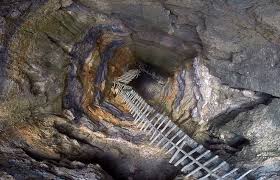Article 371 and the Future of Coal Mining in Meghalaya
Current Affairs NationalPosted by newadmin on 2025-02-13 08:40:45 |
Share: Facebook | Twitter | Whatsapp | Linkedin Visits: 24

In Meghalaya, discussions have intensified over the potential application of Article 371 of the Indian Constitution to resume rat-hole coal mining, a contentious issue as the state prepares for elections. The Voice of the People Party (VPP) has put forth this proposal, drawing comparisons with Nagaland, where special constitutional provisions safeguard local control over land and resources.
Article 371 grants special powers to specific northeastern states, ensuring autonomy over land and resources while allowing local customs and laws to take precedence. In Nagaland, Article 371A provides protection against central legislation in matters related to land and natural resources, setting a precedent that the VPP believes could be applied to Meghalaya.
Coal mining in Meghalaya has remained banned since April 2014 due to environmental concerns, following an order by the National Green Tribunal (NGT), later upheld by the Supreme Court. The VPP argues that Article 371 could enable the resumption of mining operations, similar to Nagaland, where NGT regulations do not apply due to special constitutional protections. This has led to a larger debate on environmental regulations and the role of local governance in resource management.
Meghalaya currently operates under the Sixth Schedule of the Constitution, which empowers autonomous district councils to manage local affairs. However, there are differing opinions on whether Article 371 can coexist with the provisions of the Sixth Schedule. Some political leaders contend that these frameworks are fundamentally incompatible, highlighting the complexities of governance in tribal areas and the challenge of balancing local autonomy with national regulations.
The issue of coal mining and Article 371 has become particularly significant in the run-up to the Khasi Hills and Jaintia Hills Autonomous District Council elections. The VPP’s stance on constitutional safeguards may influence voter sentiment. Despite a higher number of female voters, women’s representation in these councils remains low, raising concerns about gender inclusivity in local governance.
Amidst these political debates, the Coal Controller recently signed agreements for scientific coal mining at three sites in Meghalaya. The Chief Minister has emphasized that these agreements aim to boost the state’s economy and generate employment. However, discussions surrounding Article 371 and mining regulations continue to dominate the political landscape, with the upcoming elections likely to shape the future of coal mining and governance in Meghalaya.
Search
Categories
Recent News
- Asian Football Showdown: India Joins the Race to Host 2031 Asian Cup
- Hyderabad Firm's $5.2 Crore Fraud Unveiled
- Space Data Centers: Musk's Vision or Mission Impossible?
- Delhi's Missing Persons Crisis: Political Parties Demand Action
- Metro Stations Get a Refreshing Mist Makeover
- ED Seizes Assets in Multi-Million Rupee FEMA Violation
- Hyderabad Transport Officials: No Helmets, No Entry for Students
- Hyderabad's War on Drugs: Intensified Surveillance for Major Peddlers
Popular News
- Navigating IPO Market Dynamics Amid Volatility and Regulatory Changes
- Massive Worldwide Microsoft Outage Disrupts Multiple Sectors
- Panjapur Bus Stand to Reshape TNSTC Routes
- తెలుగుదేశం పార్టీ - పేదరికాన్ని నిర్మూలించడంలో వాగ్దానం
- Universities Embrace Remote Learning Technologies Amidst Ongoing Pandemic